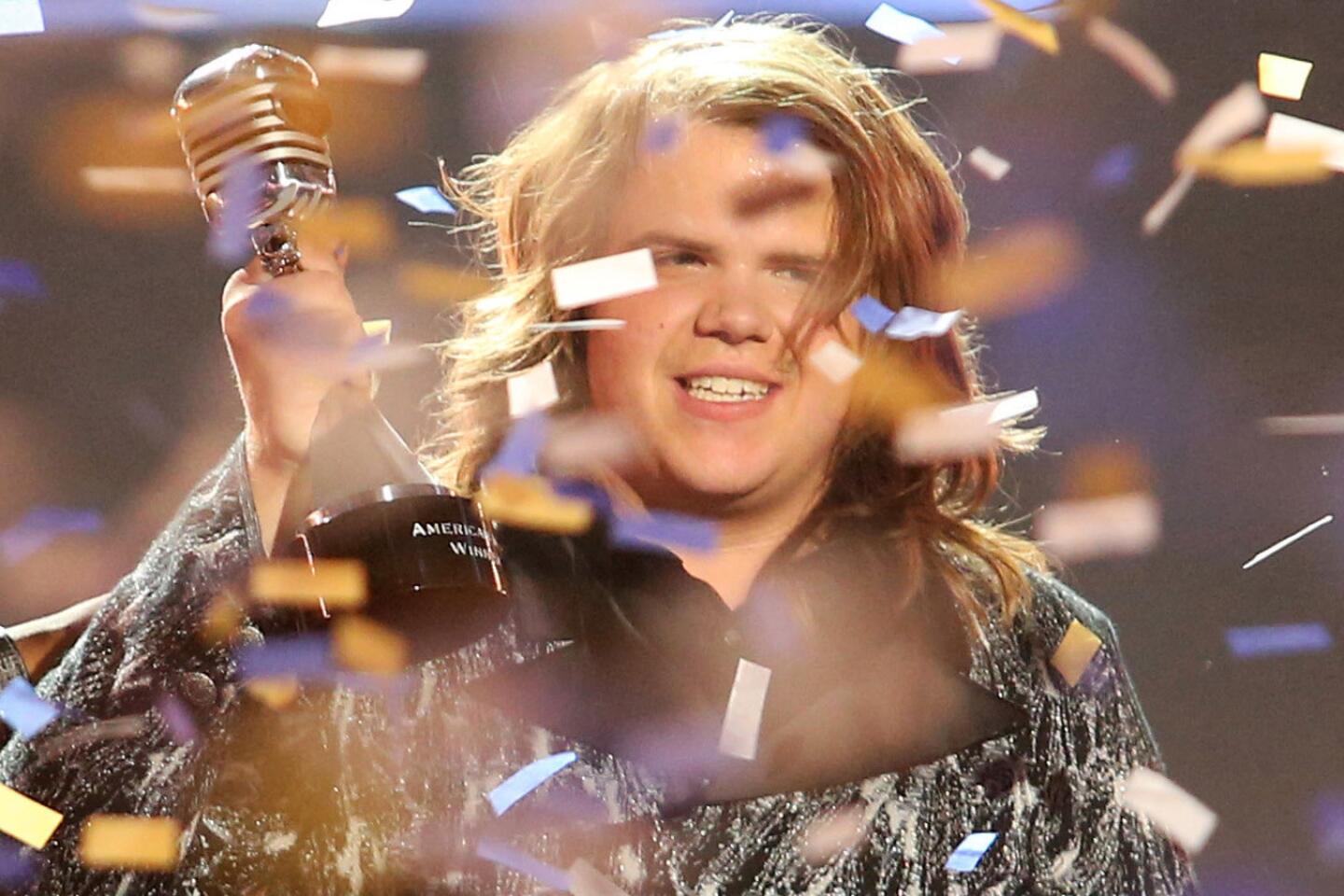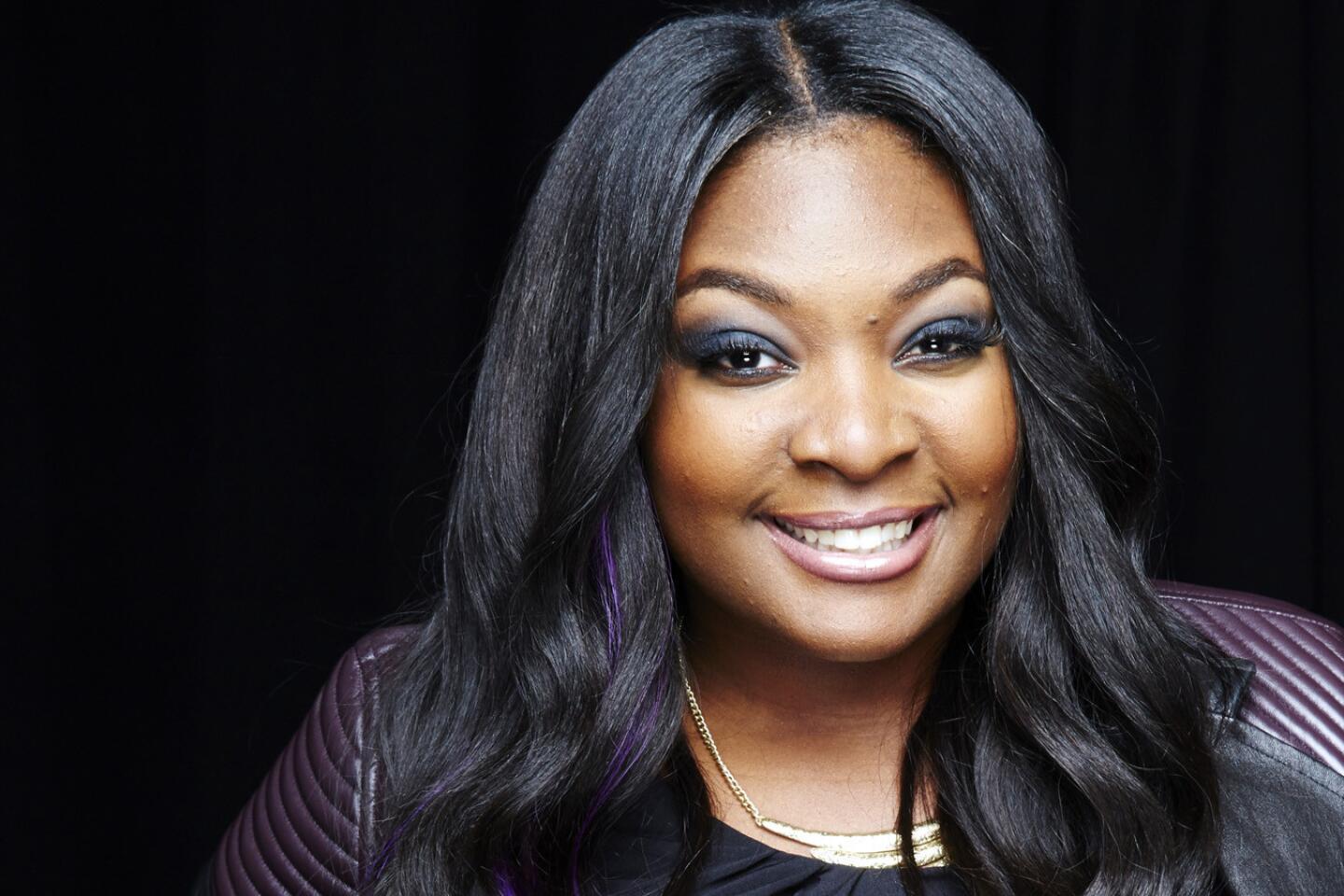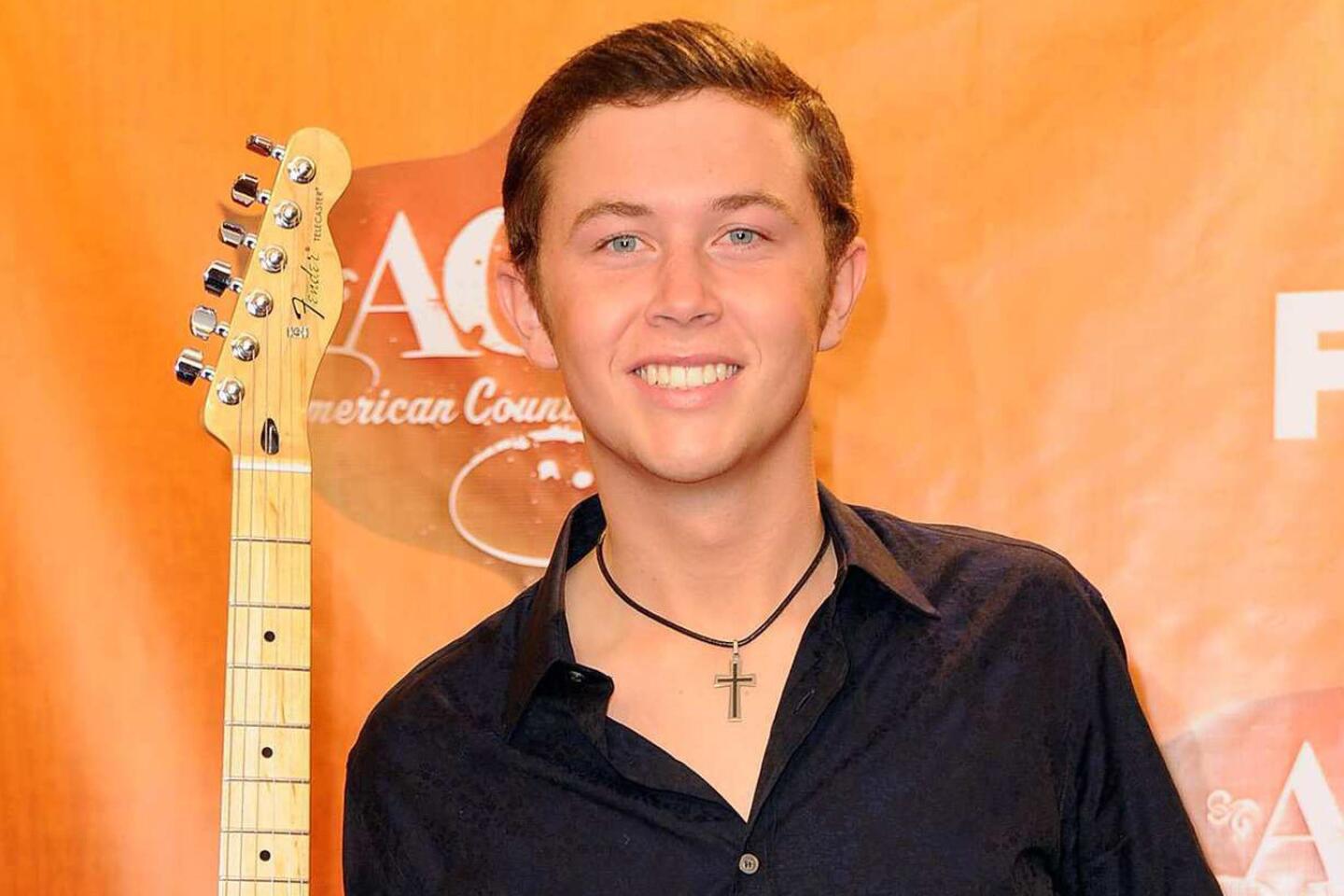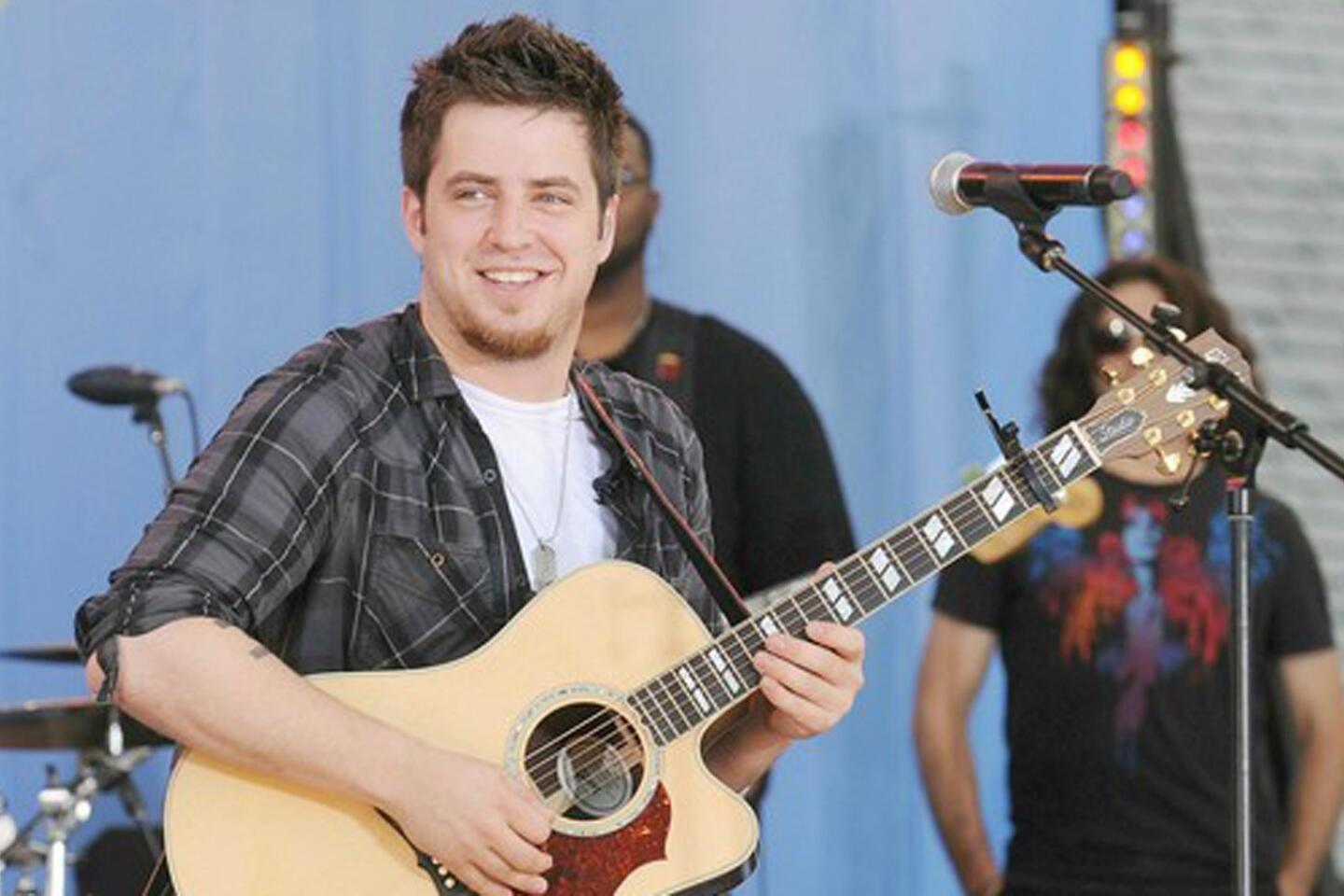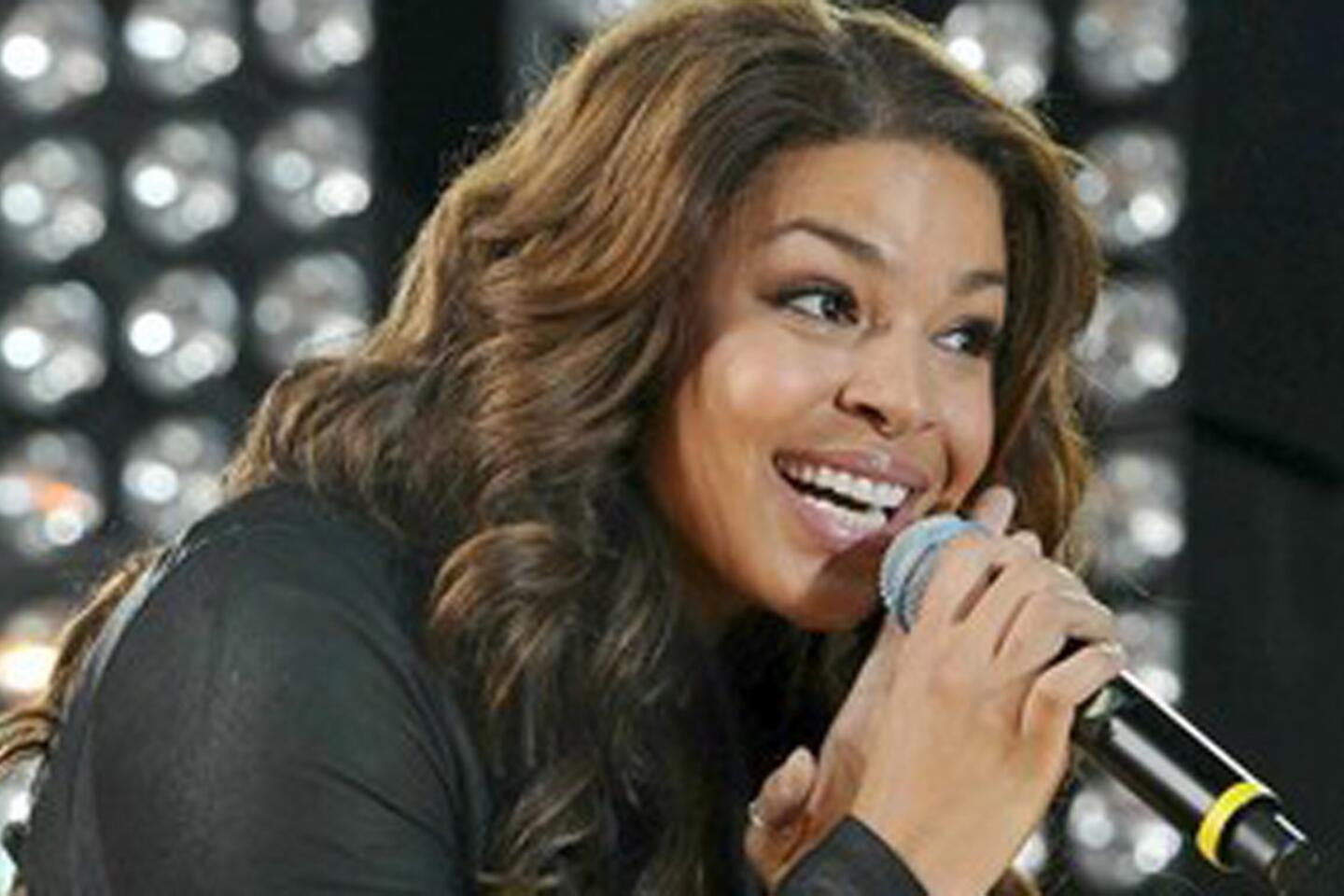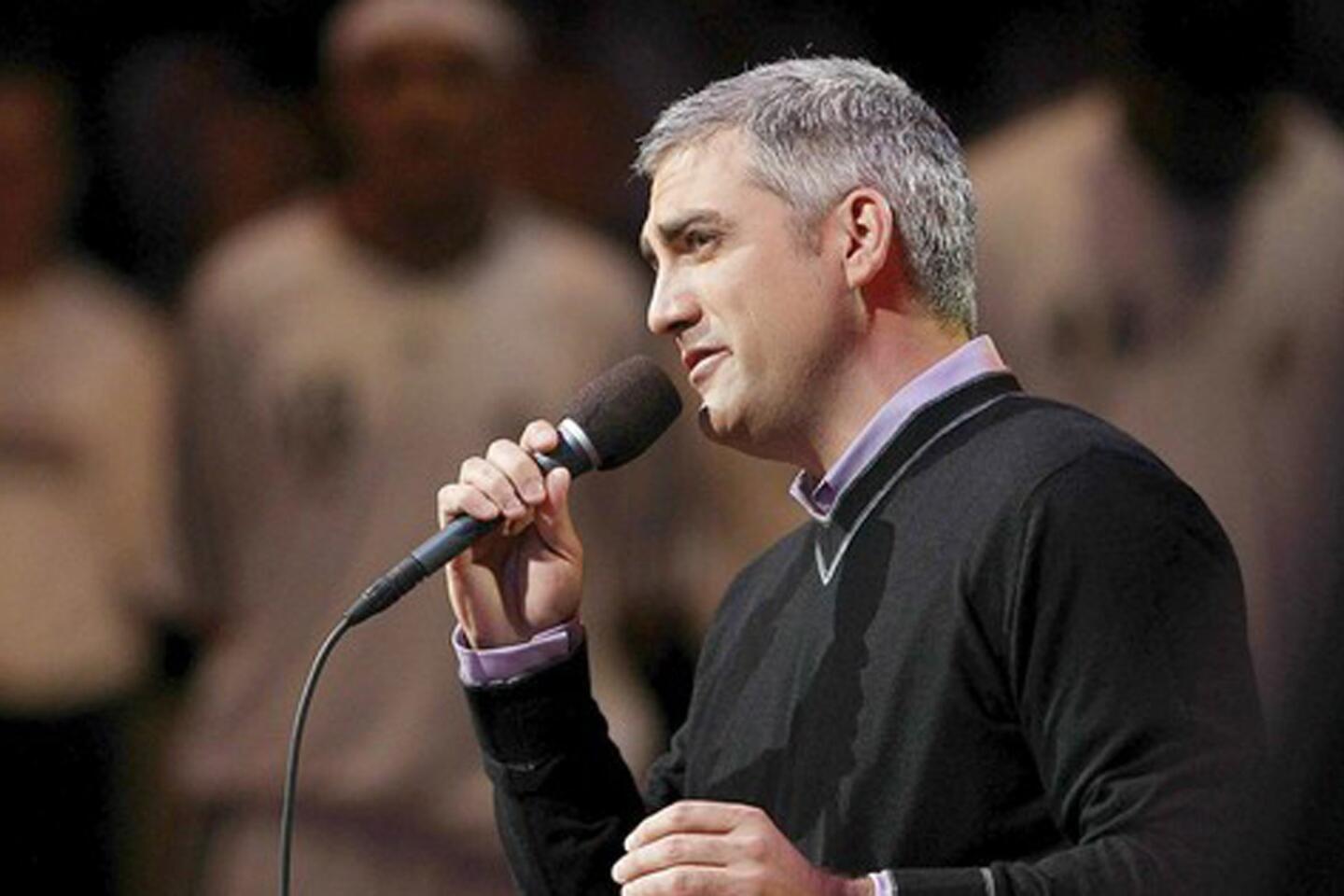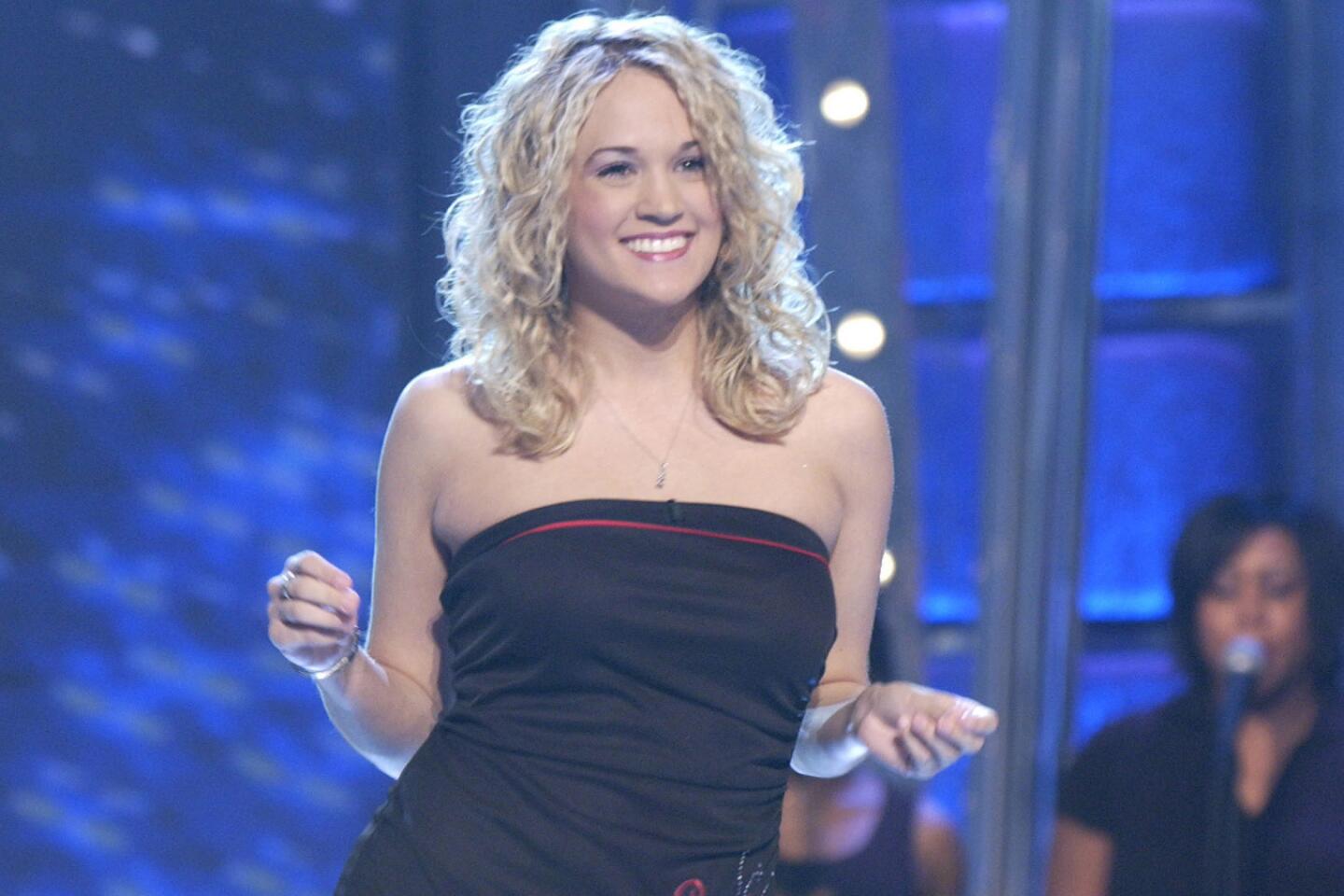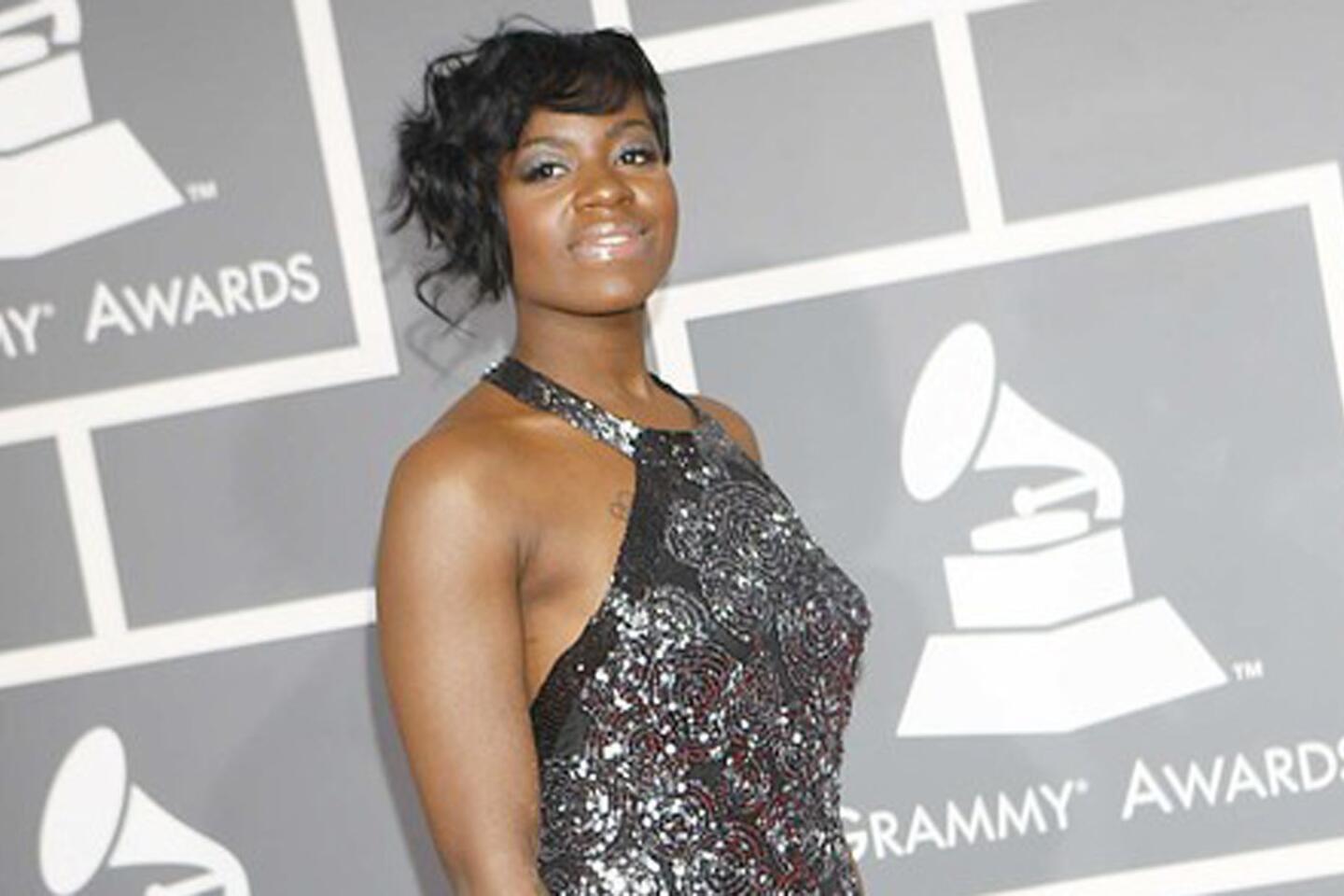In 2002, Times reporter Susan King interviewed “American Idol” personnel, including producer and then-judge Simon Cowell about the show, its critics and its singular brand of criticism.
BMG Records executive Simon Cowell became the guy everyone loved to hate last year as the acerbic judge on the successful British TV series “Pop Idol.” And now the Englishman will be offering up critical barbs on the U.S. version of the unscripted series “American Idol: The Search for a Superstar,” premiering Tuesday on Fox.
During one of the auditions, for example, he tells a young hopeful that she should hire a lawyer so she can sue her vocal coach.
Cowell says he’s just trying to give the contestants, ages 16-24, “constructive” criticism.
FULL COVERAGE: Saying farewell to ‘American Idol’
“I am not there to stop someone from chasing their dream,” he says. “If they believe they are great, good luck to them. But if they come to our audition and they want to be told the truth, they will be told.”
More than 10,000 singers have auditioned for “American Idol” at talent searches held in Los Angeles, Seattle, Chicago, New York, Atlanta, Dallas and Miami. Besides Cowell, the judges include singer Paula Abdul and Randy Jackson, a Grammy Award-winning music industry veteran and former executive at MCA Records. KYSR-FM (98.7) afternoon DJ Ryan Seacrest and comic actor Brian Dunkleman are the hosts.
Following the two-part premiere, viewers will determine each week whether constants advance to the next round by casting their votes via phone. The winner will receive a recording contract with RCA.
Cowell has found that contestants are a bit more aggressive here than in England. Though he was once threatened by a rejected contestant in the U.K., he admits he almost got beaten up after the New York audition by three participants who were angered by his comments.
1/9
Fox has announced that “American Idol” will go off the air after its 15th season next spring. Here’s a look back at the “Idol” winners over the years and what they’re up to now.
Shown from left: Scotty McCreery, Carrie Underwood, Fantasia Barrino
(From left: Frazer Harrison / Getty Images; Ray Mickshaw / WireImage; Jay L. Clendenin / Los Angeles Times ) 2/9
Caleb Johnson auditioned three times for “American Idol,” finally making it into Season 13 and eventually being declared the winner. Right after his triumph, he began working on his debut post-”Idol” album, collaborating with several musicians over three weeks. “Testify” was released on Aug. 12, 2014, making it the quickest album to be released by an “American Idol” winner. He had his first headlining show since “Idol” in October, and has gone on to perform in Vegas. A new music video for his song “Fighting Gravity” was released in March.
(Paul A. Hebert / Invision / AP) 3/9
On May 16, 2013, Candice Glover won the 12th season of “American Idol.” Her debut album, “Music Speaks,” along with her debut single, “I am Beautiful,” were immediately available for pre-order — a first for the “Idol” franchise. The album was released on Feb. 18, 2014. In its first week “I Am Beautiful” made it to No. 93 on the Billboard Hot 100. Glover performed on “The Tonight Show With Jay Leno,” toured with “American Idols Live” and is reported to be working on a second album for 2015.
(Dan Hallman / Invision / AP) 4/9
Scotty McCreery took home the “Idol” win in 2011, and the country crooner hit the road with his fellow contestants before releasing “Clear as Day” in October. The album was an instant hit, going to No. 1 on the Billboard 200. His second album, “Christmas With Scotty McCreery,” was released on Oct. 16, 2012, and debuted at No. 4 on the Billboard 200, selling 41,000 copies in the first week. His third album, “See You Tonight,” was released in 2013 and its title single was in the top 10 on Billboard’s Hot Country Songs chart. An avid sports fan, McCreery began blogging for Major League Baseball. He is scheduled as one of several opening acts on Rascal Flatts’ 2015 Riot Tour.
(Frazer Harrison / Getty Images) 5/9
Lee DeWyze has suffered a few blows since his first album, “Live It Up,” was released in 2010. He landed in a heated Twitter feud with “American Idol” producer Nigel Lythgoe after he passed on the chance to present Scotty McCreery as the winner on the Season 10 finale. A few months later he was dropped by his record label, RCA Records. On the bright side, he spent much of 2011 touring internationally, and the Illinois native got engaged to girlfriend Jonna Walsh in July 2011. The couple married in fall 2012. He released “What Once Was” in 2012 and his most recent album, “Frames” in 2013.
(Stephen Lovekin / Getty Images) 6/9
After releasing her sophomore album “Battlefield” in 2009, Sparks toured with the Jonas Brothers and Britney Spears before launching her first headlining tour in summer 2010. She got acting gigs on “The Suite Life of Zack and Cody” and “Big Time Rush” as well as a 12-week run in Broadway’s “In the Heights.” The singer even recorded “The World I Knew” for Disney’s “African Cats” and opened for the new super-group NKOTBSB (New Kids on the Block and Back Street Boys). Her 2011 song/album “I Am Woman” became the theme song of the Women’s National Basketball Assn. (WNBA). In 2012, she made her big-screen debut in Sony Pictures’ “Sparkle.” In 2013 Sparks was featured on Jason Derulo’s third studio album, “Tattoos.” Her upcoming third album, “Right Here, Right Now,” is planned for release May 2015.
(Larry Busacca / Getty Images for Nickelodeon) 7/9
Taylor Hicks realeased his first album “Taylor Hicks” in 2006, and his second, “Early Works,” in 2008. Arista Records dropped Hicks in January 2008, and he released his 2009 album, “The Distance,” under his own label, Modern Whomp. He also hit the road in 2008 as part of the “Grease” cast. The Soul Patrol superstar reportedly raked in millions thanks to the tour, album sales and appearance fees. He continued touring the country and keeping fans in the loop with his “Riding Shotgun With Taylor Hicks” videos on his blog. In 2012 he began a residency as a performer in Las Vegas. These days, he performs around the U.S. and has a country album in the works.
(Gregory Shamus / Getty Images) 8/9
After her big “Idol” win in 2005, Carrie Underwood released her debut album, “Some Hearts,” in 2005, which won her three Grammy Awards, including best new artist. She continued her success with three more albums, earning a total of seven Grammy Awards. Forbes estimates her net worth as over $110 million, making her the highest-earning “Idol” winner, and Time magazine lists her as one of the 100 most influential people in the world.
(Ray Mickshaw / WireImage) 9/9
It hasn’t been easy for Barrino since her “Idol” win back in 2004. Financial woes, health issues and a reported suicide attempt have followed. Despite the drama, she appeared on Season 10 of “Idol” and won a female R&B vocal performance Grammy for her song “Bittersweet.” She performed at the 2012 Essence Festival and was named 32nd out of the 100 Greatest Women in Music by VH1. Barrino starred in the musical revue “After Midnight” in 2013, and recorded and co-wrote the song “In the Middle of the Night” for the film “The Butler.” She is reportedly at work on a fifth studio album.
(Jay L. Clendenin / Los Angeles Times) “I wouldn’t do the show without security,” he says. “I have spent a fortune on my teeth, and I intend to keep them.”
His outspoken opinions have also irked the other judges. “Randy has already offered to beat me up,” Cowell says gleefully. “Paula has threatened to walk off because of my attitude. I think Paula’s problem is that there is a lot of sexual tension between the two of us. I felt it on the first day I met her.”
Seacrest and Dunkleman provide moral support for the hopefuls.
“We are not, obviously, here to judge the talent or give them the nod to go on the next level,” says Seacrest. “We are there to hang out, ask them how they are feeling, talk about their nerves and really be their friends. Both Brian and I have had the opportunity to have some wonderfully energetic and exciting moments and, at the same time, some very difficult moments when the kids didn’t have what it takes and they were destroyed, their hearts were broken.”
Co-executive producer Nigel Lythgoe, who also did the British version, says “American Idol” is not a retread of two other recent series about music hopefuls, WB’s “Popstars” and ABC’s “Making the Band.”
“With ‘Popstars’ and ‘Making the Band,’ you have to constantly think, ‘Will this person fit into a band?’ ” Lythgoe says. “Here you are looking for an outstanding individual. The second thing is that at the end of the day, it doesn’t matter what the judges think because once the top 30 contestants are there, the public takes over and the public decides on the top 10. Then each week, the public knocks one of them out.”
Lythgoe maintains that “American Idol” is less a talent show and more a slice of human drama, “like the kid who turned up and said to the judges, ‘Both my parents are deaf and they’ll never hear me sing.’ And he sang ‘When I Fall in Love’ and signed it at the same time. It was just beautiful.”
There have also been numerous humorous incidents, especially revolving around contestants lying about their age during the audition process.
“We had one guy who was 53 telling me he was 23,” Lythgoe says. “I said, ‘I don’t think so.’ ”
MORE:
‘American Idol’: The slow fade of an instant hit
‘American Idol’: Where even the losers were winners
Our first review of ‘American Idol’: This show could use a gong for everyone
From the Archives: Some ‘American Idol’ thoughts from Simon Cowell in 2002

